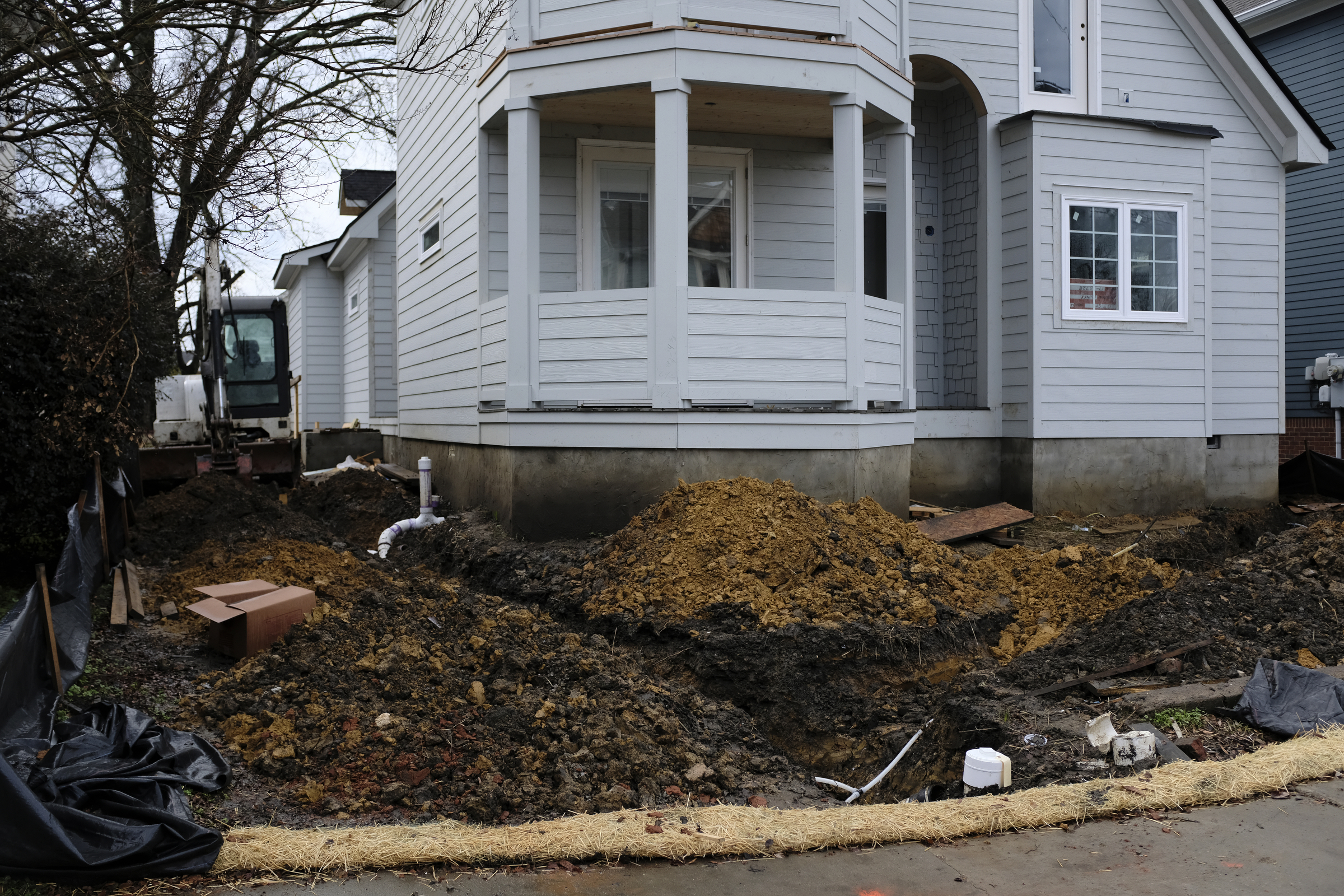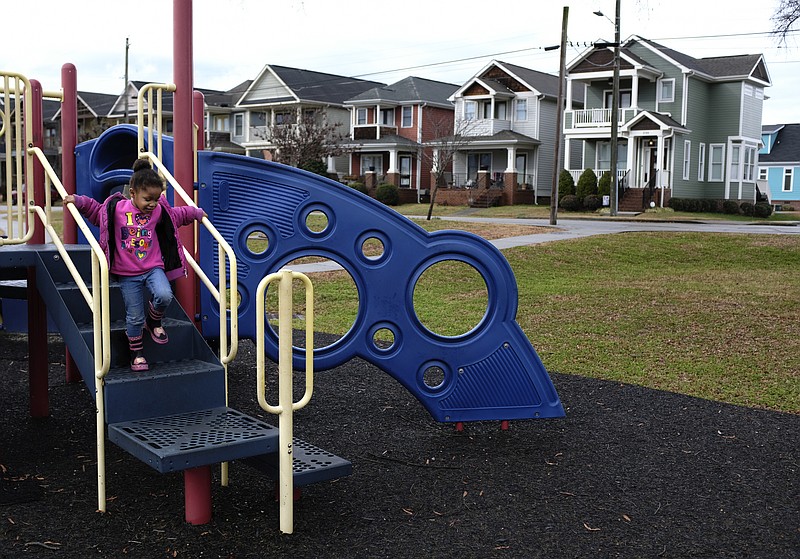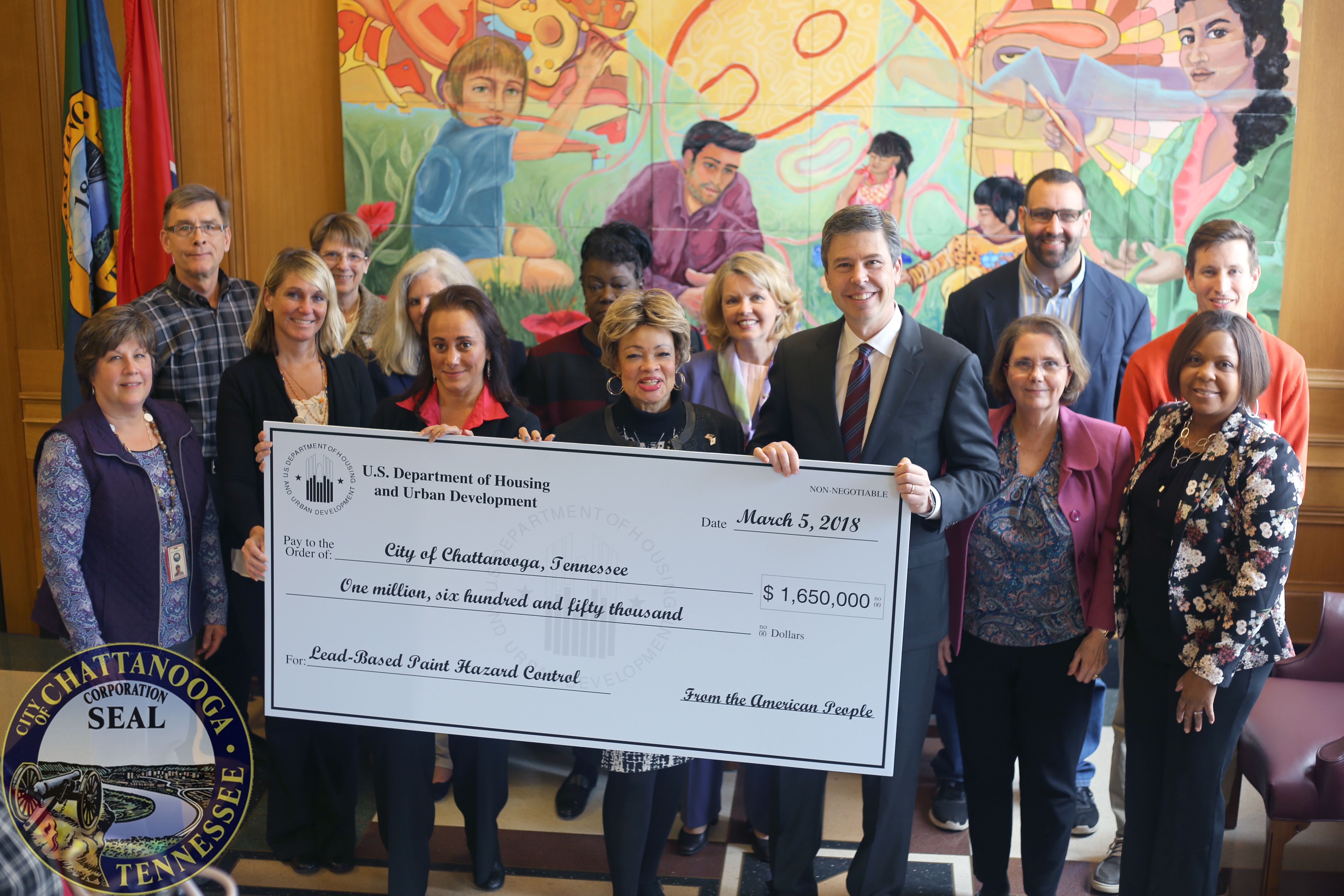Chattanooga will receive $1.65 million to help remediate homes with lead contamination.
The money will help the city increase the number of safe homes available to residents and reduce the number of children exposed to lead, according to a statement from city spokesman Kerry Hayes.
 An excavator is seen in the yard of a home under renovation in the Jefferson Heights neighborhood on Friday, Jan. 12, 2018, in Chattanooga, Tenn. Parts of Jefferson Heights, along with locations in Alton Park, Cowart Place, Richmond and the Southside Gardens neighborhoods, have been proposed as EPA Superfund sites after lead contamination was found in the yards of homes.
An excavator is seen in the yard of a home under renovation in the Jefferson Heights neighborhood on Friday, Jan. 12, 2018, in Chattanooga, Tenn. Parts of Jefferson Heights, along with locations in Alton Park, Cowart Place, Richmond and the Southside Gardens neighborhoods, have been proposed as EPA Superfund sites after lead contamination was found in the yards of homes."This grant will assist low-income homeowners and renters in reducing lead poisoning risks by addressing unsafe lead paint conditions that pose a potential health hazard to young children," said Donna Williams, administrator of the city of Chattanooga's Economic and Community Development Department, in a statement.
Seventy-five homes will receive lead abatement, with 40 of those homes also receiving repairs including plumbing work, electrical work and safety upgrades.
The grant came from the U.S. Department of Housing and Urban Development, and the city is partnering with groups across Chattanooga that will help provide support for the project.
One of those partners is green|spaces, a local nonprofit organization that will connect people to the project.
"It does not matter your economic status. Lead can affect anyone anywhere," green|spaces director of development Dawn Hjelseth said. "Especially people living in older houses, which we have a lot of here. It can dramatically impact someone's IQ level, especially in children."
At least 50 people will be trained to help remediate the homes as part of the project.
Lead is considered to be one of the biggest environmental threats to American children.
The goal of the project is to reduce the number of children exposed to potential lead poisoning.
Those interested in applying for the grant should contact the City's Community Development Office at 423-643-7344 or Jennifer Bissett at jbissett@chattanooga.gov.
Other sponsors are the Chattanooga-Hamilton County Health Department, Chattanooga Housing Authority, Habitat for Humanity, Chattanooga Neighborhood Enterprise, Southeast Tennessee Human Resource Agency, University of Tennessee Extension, Chattanooga Head Start, Chattanooga Community Housing Development Organization and the Chattanooga Fire Department.
Contact staff writer Mark Pace at mpace@timesfreepress.com or 423-757-6361. Follow him on Twitter @themarkpace and on Facebook @ChattanoogaOutdoorsTFP

